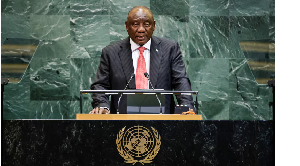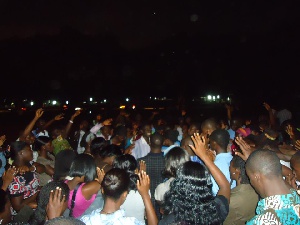Faced with demands for higher yields by investors for corporate bonds, the non-bank financial intermediaries listed on the Ghana Alternative Stock Exchange, GAX, are having to turn towards straight deposits from investors in order to curb the rises of their cost of funds.
Currently, there are 29 corporate bond issuances listed on Ghana’s stock market, most of them on the GAX, the stock market for small and medium sized enterprises established a few years ago by the Ghana Stock Exchange itself.
The bond issuances have been done by nine companies in the form of Medium-Term Notes (MTNs) most of them issued by non-bank commercial lenders including the pioneers of this genre, AFB Ghana, as well as Bayport, Bond Savings and Loans, izwe Savings and Loans, and Dalex Finance & Leasing. The state is represented in this market by ESLA, the special purpose vehicle being used by government to refinance and ultimately pay off its legacy debts from the energy sector.
Altogether corporate bonds worth some GHc2,721 million and another US$335,000 are in issuance, although no Ghanaian company has yet done a bond issue on international capital markets.
Since the middle of this decade led by AFB Ghana – the local subsidiary of the pan African Letshego Financial Group, and one of the leading non-bank financial intermediation companies in the country – several commercial lenders have resorted to issuing medium tenured bonds to finance their lending, listing their bonds on the GAX and offering coupon interest rates that provide a premium over government’s own medium-term treasury bonds.
However, yields on those benchmark government bonds have been rising all through 2018, and investors are demanding similarly rising yields on corporate bonds as well. The MTNs issued by GAX-listed financiers customarily have tenors of between five and seven years and government’s similarly tenured treasury bonds have risen significantly on both the primary and secondary markets over the past one year. For instance, government’s seven-year bond yields rose by 4.7 percent from 16.3 percent to 21 .0 percent in 2018.
Corporate bond issuers have to offer a premium of, on average, five to eight percent over government bond rates of similar tenors to attract investors and this now means coupon rates approaching 30 percent on new issuances.
AFB Ghana, has prided itself for its competitive lending rates for retail and small business loans, which it customarily lends to at about 5 percent a month which translates to about 60 percent per annum. In 2017 the company reported that its bond programme had been pivotal in lowering its cost of funds by about 35 percent, but the current rise in bond yields means that future issuances – the next one is planned for before mid-year, and which will add to the GHc300 million already issued – will put pressure on its margins.
Consequently AFB, having pioneered MTNs is now pioneering a move towards straight deposits from investors, both individuals and institutional. As part of its balance sheet restructuring ahead of its impending transformation into a savings and loans company, AFB had already begun accepting deposits, but current pricing trends on the domestic bond market will give it impetus to intensify its marketing efforts dramatically. Here the BBB+ rating AFB’s bonds have been given by Global Credit Ratings – the leading rating agency for privately owned corporations in Africa – places it in good stead, because it gives AFB a superior creditworthiness among potential large depositors in the same way that it leveraged to become the most attractive proposition for investors in MTNs.
Its competitors are doing the same thing. For instance, izwe Savings and Loans, has been moving from MTNs to straight deposits for the past two years. Having started taking significant volumes of deposits in 2017, it had GHc98.579 million in deposits by the end of 2018, making this a bigger funding source than the corporate senior notes (bonds) of GHc64.851 million and corporate subordinated notes of GHc16.613 million combined.
To attract straight deposits, such companies need to offer a premium above the fixed deposit rates offered by banks which in turn have to offer a premium over the rates offered on short term government treasury bills. But crucially those rates have not risen nearly as fast as medium-term bond rates – in 2018, 91-day treasury bill rates only rose by 1.3 percent to 14.6 percent and the 100-basis points reduction in the Monetary Policy Rate to 16 percent by the Bank of Ghana at the end of January could actually lead to falling rather than rising short term interest rates.
Taking deposits, which tend to be short term, rather issuing medium term bonds is more price efficient when the proceeds are to be used for short term lending – AFB’s loans have tenors of between three and 36 months.
Therefore, not only will AFB’s deposit products offer a safe investment outlet that provides significantly above market average returns – it will enable the company’s borrowing customers to keep on taking loans at below market average interest rates.
Business News of Wednesday, 13 February 2019
Source: goldstreetbusiness.com













